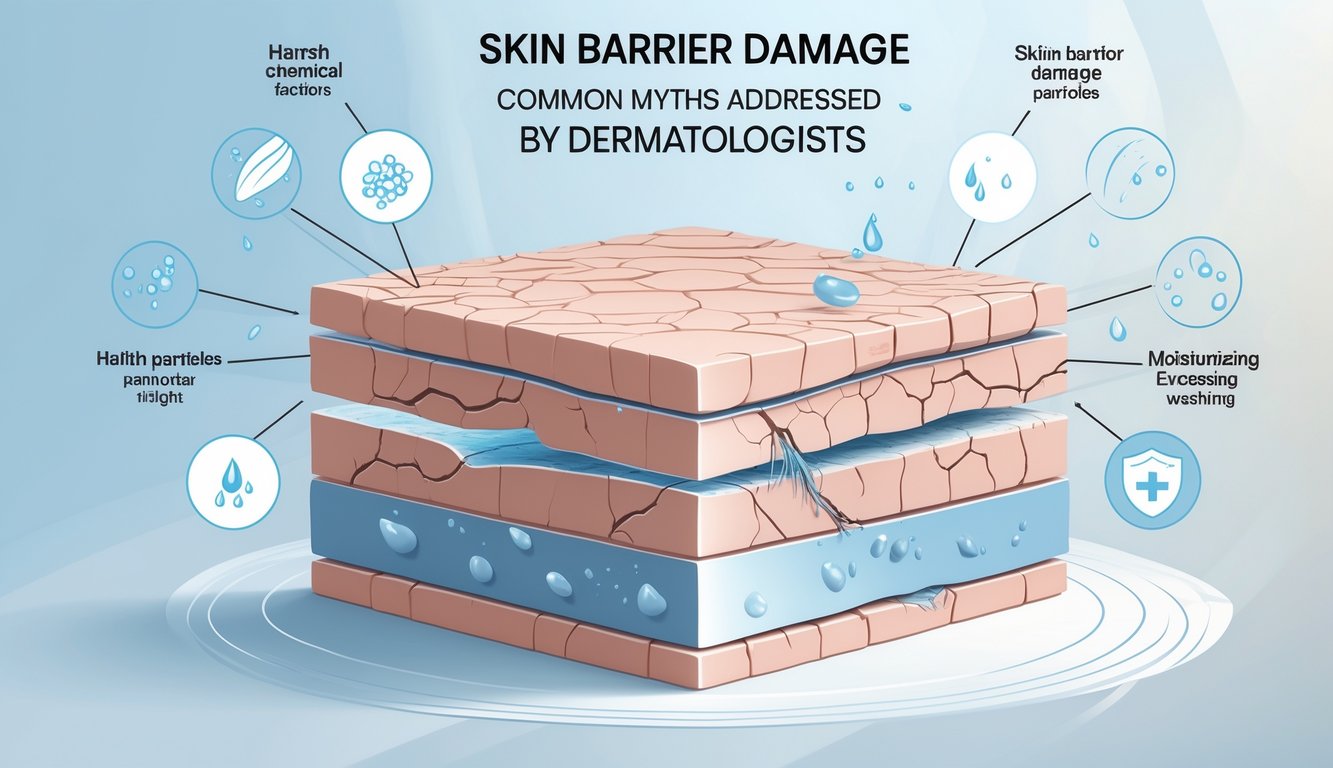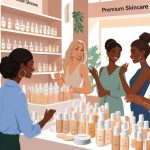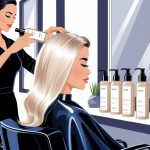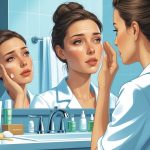Skin Barrier Myths Finally Addressed by Dermatologists for Concerned Adults
Expert Insights from Dermatologists
Here’s what gets me: so many adults panic about the “skin barrier” but totally miss what dermatologists are actually saying. After talking to a few (okay, pestering them), my whole view changed—especially about what counts as damage and what you should actually care about in a routine.
The Role of Board-Certified Dermatologists
You walk into a derm’s office expecting a pep talk, but what you get is, “We use evidence, not marketing.” Dr. Block (yes, real, board-certified, Illinois, probably way overqualified) says credentials matter because they keep you away from the dumbest fads. Board certification isn’t just a flex—it means three years of extra training after med school, and they have to keep studying or get left behind. Dr. Marianna Blyumin-Karasik in Florida? Same story. Healthy skin barriers are about science, not influencer wisdom. Allergic to botanicals? They won’t promise “natural” is safer, no matter what that Instagram ad says.
How Dermatologists Assess Skin Barrier Damage
Honestly, the second I type “skin irritation” into Google, I can just picture dermatologists somewhere rolling their eyes. They don’t just stare at your face and guess, either—there’s this weird ritual. I’ve seen them whip out pH strips, hydration gadgets (yes, those exist, and they beep), and poke around for redness, flaking, or those tiny cracks I never notice until they mention them. If you’ve nuked your skin with harsh cleansers, they’ll spot it in two seconds.
That pandemic hand-washing era? Still paying for it. Dr. Richard Gallo basically said we all over-sanitized and under-moisturized, but nobody’s out here admitting it. And, plot twist, some so-called “gentle” fragrance-free stuff is sneakily harsher than the old-school perfumed junk. They’ll grill you about every soap, serum, and SPF you’ve touched (assuming you even remember). Skin barrier mess-ups? Never look the same twice, which is wild, considering we all end up using the same handful of brands anyway.
Top Recommendations for Adults
I’ve decided I’m done believing “glass skin in a week” promises. Dermatologists I’ve bugged (and, wow, they have opinions) keep saying boring routines win: skip the 12-step drama, just stick to basics. SPF 30 is non-negotiable, apparently, which I forget by lunch, and ceramide-heavy moisturizers (CeraVe, La Roche-Posay, the usual suspects) get recommended way more than any TikTok serum.
You want some magic list? Sorry, they’ll just tell you to tweak for your climate, age, allergies, and—randomly—shower temp. Three different derms told me petroleum jelly is still their “secret weapon” for emergencies, but, of course, there’s no miracle cure. Wildest tip I got: stop chasing trends, read ingredients, and actually write down when your skin freaks out or glows. Weekly notebook check-ins sound like overkill, but honestly, it’s more helpful than any viral headline.
Factors That Damage the Skin Barrier

Finally, someone calls out the obvious nonsense, but my face still burns after a cloudy walk to work. I keep a running list in my phone of every random thing that trashes my skin—city air, rogue product combos, you name it. Even my dermatologist says pollution is a bigger deal than anyone wants to admit. Sometimes I wonder if I’m just allergic to modern life.
Environmental Factors and Pollution
City air is a disaster for skin. Every time I visit somewhere with actual trees, my face calms down, so what gives? Metro air is basically a soup of irritants: dust, exhaust, weird chemicals. Studies keep popping up about pollution wrecking skin proteins and spiking inflammation, so it’s not just “dirty air,” it’s like chemical warfare for your face. Clothes catch some junk, but your skin gets the worst of it.
Humidity? Too high and I’m an oil slick, too low and I’m peeling like a croissant. On days I wash my hair, pollution sticks even worse—why? Sunscreen blocks some particles, but not nearly enough, and don’t get me started on air purifiers (total placebo for skin, sorry). If someone claims mineral sprays fix pollution, ask for proof—watch them fumble. Dermatologists say pollution makes skin conditions worse, especially if you’re scrubbing too much or skipping cleanser. Indoor heat? Also a villain. Everything’s out to get you.
UV Rays and Sun Exposure
Sun finds the weirdest spots—under my chin, on the back of one ear, through car windows. UVA rays are relentless, clouds do nothing, and apparently up to 80% of visible aging is from UV (thanks, AAD, for ruining my day). My worst sunburn ever lasted two weeks and ruined multiple shirts with aloe stains. Point is, even “just running errands” matters.
Free radicals (not the cool kind, the cell-destroying kind) mess up your barrier lipids and proteins every time you forget sunscreen. Every derm says SPF 30 is the bare minimum, but if you don’t reapply, you might as well not bother. Hats, sunglasses, UPF shirts—they’re all now “just basic hygiene.” Oh, and car windows? Don’t block UVA, so apparently my commute counts as sunbathing now. Great.
Harsh Skincare Ingredients
I once bought a serum that smelled like vodka and promised miracles. Ended up with sandpaper cheeks. Exfoliants, fragrances, preservatives—so many ways to trash your skin’s top layer. A derm actually laughed at my seven-step routine. Fewer products, fewer harsh chemicals, less drama. I mean, why is that so hard?
Go wild with retinol, AHAs, or alcohol toners, and your skin basically gives up. Even “natural” oils can be a nightmare—citrus oils, especially, love to cause drama and photosensitivity (no label will ever admit it). There’s research showing one bad product can wreck your barrier for weeks. Derms say stick to ceramides, fatty creams, and maybe a gentle cleanser, but ignore anything promising “overnight transformation.” If I can’t pronounce half the label, I’m out.



